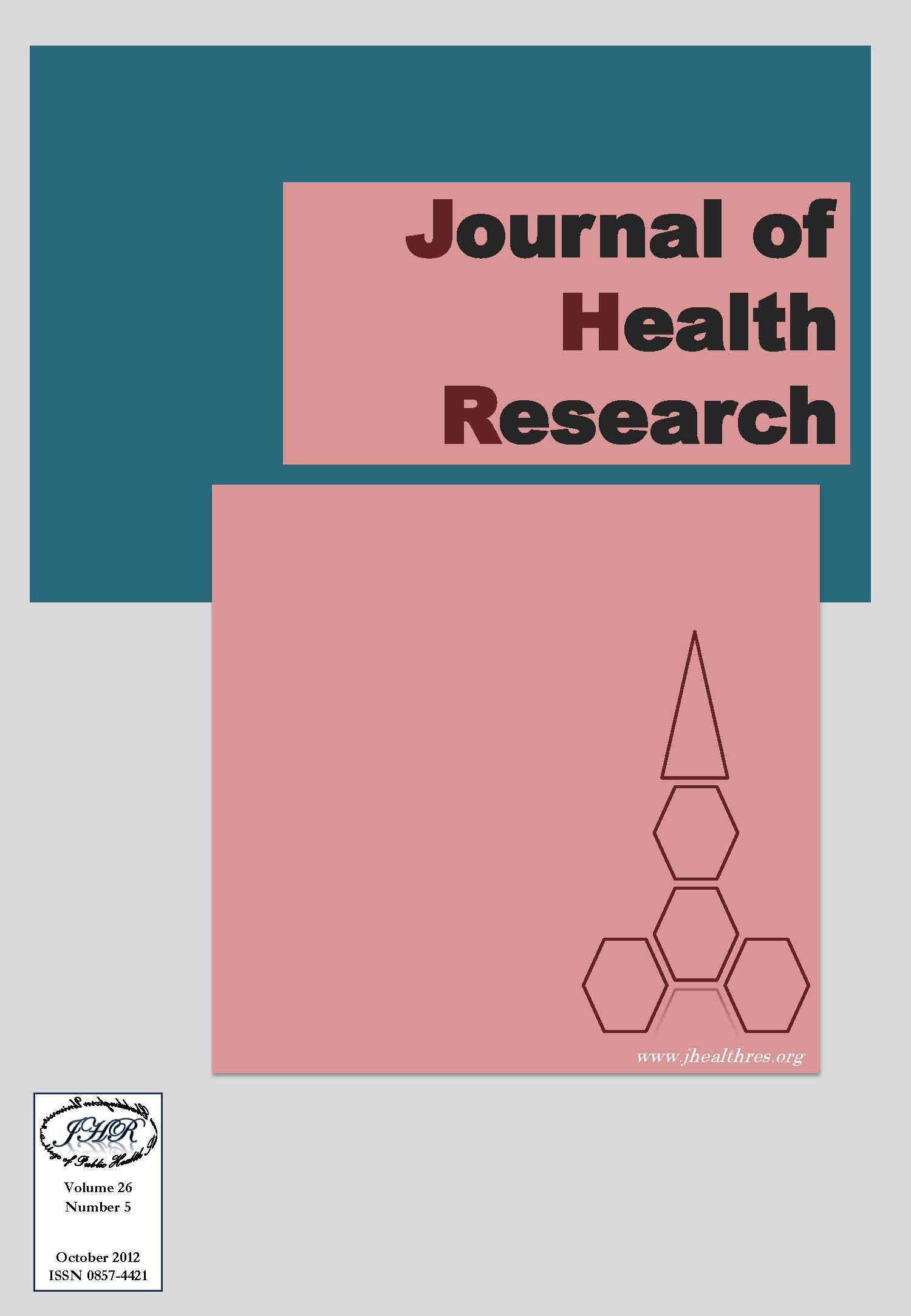Perception and Willingness to Obtain Influenza Vaccination among Healthcare Staff and Elderly Group : a Case Study at the Public Hospital, Nakhonchaisri District, Nakhonpathom Province
Keywords:
Perception, Willingness, Influenza Vaccination, Healthcare Staff, Elderly, Public HospitalAbstract
The first cases of influenza A (H1N1) infection was identified in Mexico and the United States, and spread rapidly on a worldwide. The World Health Organization recommended to reducing the chances of developing severe illness including vaccination strategies. The objectives of this study were to identify the major factor influences on willingness to obtain influenza vaccination among healthcare staff and in elderly group. To explore perception about safety and efficacy among health care staff and elderly and to compare the relationship between perceived severity and influenza vaccination among health care staff and elderly.
This study was a cross sectional study and the target populations were healthcare staff of the public hospital and elderly group, in Nakhonchaisri district, Nakhonpathom province. The study was conducted during the period of April – Aug 2011. The research instrument had 2 questionnaire sets, one for healthcare staffs and another for elderly group. The sample size was calculated by using Taro Yamane formula and by using simple random sampling technique study populations were selected. Chi square test was used to analyze for the categorical data and the relationship between demographic and other characteristics of healthcare staff and elderly group and their willingness to receive vaccination were further analyzed by SPSS. Statistical significance was set as p<0.05. The research was approved by college of public health sciences, Chulalongkorn University.
Finding: Most of the respondents (72%) had high level of preventive behavior regarding to influenza. The elderly (44.6%) had moderate level of preventive behavior about influenza. Most of the elderly (58.1%) had low level of knowledge about influenza vaccination. Most of healthcare personal and health care worker had low level of knowledge about influenza vaccination with 63.6% and 41.3% respectively. There were significant between age (p-value = 0.007) and history of influenza vaccination (P-value 0.000) with intended to influenza vaccination.
Most of the subjects concerned about inadequate information about influenza vaccination while most of health care worker concerned about vaccine efficacy. There were significant between perceptions about an Influenza vaccination with intended to influenza vaccination (p-value = 0.003).
Therefore, the knowledge about influenza vaccination and vaccine safety should be promoted.







